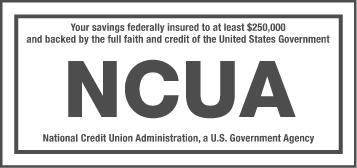
Saving for Homeownership
posted on
October 15, 2025
For most people, buying a home is both an exciting and challenging venture—it is the quintessential American dream. However, because of the high costs involved, saving for home purchase takes commitment, research, and sometimes sacrifice. This fact sheet will provide general information on the costs involved and the types of expenditures you will need to save for in order to buy your first home.
The down payment
The down payment will be the most significant outlay of your pre-purchase costs. The rule used to be that you needed to put down 20% of the purchase price, and you would obtain an 80% mortgage. Today, homebuyers can buy a home with as little as three to five percent down. If you do put less than 20% down, you will probably have to purchase private mortgage insurance, which will cost you between .5% to 1% of the loan amount until your equity reaches the full 20%. Keep in mind that the more you put down, the less your mortgage payment will be.
Earnest money
Earnest money is a cash deposit you make when you submit your offer, which proves to the seller that you are serious about wanting to buy the home. Your real estate broker will deposit the money into an escrow account, and if your offer is accepted, it will be applied towards the down payment. If the offer is rejected, it will be returned to you. Typically, the earnest money deposit will be about two percent of the price of the home.
Closing costs
Closing costs include all fees required to execute the sale transaction, such as attorney fees, title insurance, appraisals, points, and tax escrows. Typically, these fees are paid up front. The average cost is three to five percent of the purchase price.
Post-purchase reserve funds
You may also need to prove to the lender that you have some reserve funds to protect against potential cash flow problems. This not only is assurance for the mortgage holder, but is also for your peace of mind. Post-purchase reserve funds should be at least two to three months’ worth of housing payments. This money is recommended to be in a savings account and accessible without penalties for early withdrawal (though money in a retirement account can also be counted toward the reserve requirement).
Cost breakdown
So how much money will you need to come up with to buy a home? The actual figure depends on many factors. You may have to save more or less for the same home depending on current interest rates, whether you get a fixed or an adjustable rate mortgage, repayment terms, and your credit rating. Other expenditures you may want to save for are landscaping, immediate repairs, redecorating, furnishings (particularly if you are moving into a much larger space), and moving expenses.
Example for a $300,000 Property:
20% Down payment $60,000
3.5% Closing costs $10,500
3 Month reserve fund* $5,625
Total estimated pre-purchase costs $76,125
* $1,875 per month for Principal, Interest, Taxes and Insurance. Example based on a 30-year fixed mortgage, 6% interest, $2,436 annual property tax and $2,796 annual homeowners insurance.
Educate yourself
Obtaining high quality, objective home ownership education is essential for first time homebuyers.
The Department of Housing and Urban Development (HUD) can put you in touch with the nearest housing counseling professional in your area by calling (800) 569-4287. You will learn how to develop a reasonable savings goal and time frame, how large a mortgage you qualify for, and the approximate price range in which you should be looking. You will also be given feedback about your credit score, and what you need to do in order to make improvements. Suggestions may include increasing income, paying down debt, closing unused accounts, paying collection accounts, correcting errors, and making timely payments for a specific time period.
Review your spending plan
Analyze your current financial position by reviewing all assets and liabilities. Do not overlook any source of funds. Include all checking and savings accounts, CDs, stocks, mutual funds and savings bonds. Retirement funds such as a 401k or an IRA can be counted toward the reserve requirement. You may even be able to borrow against your 401k plan and use the proceeds toward the down payment (check with your human resources department for details and restrictions).
Prepare a cash flow spending plan to determine how much you can realistically save each month. You may choose to sacrifice some expenses or delay the purchase of non-essential items in order to meet your monthly goal.
Save effectively
Some good techniques for effective saving include:
- Set up direct deposit with your employer, where a portion of your income is siphoned directly to a savings account. What you don’t see, you don’t miss.
- Track your spending. Awareness leads to diligence and thrift.
- Get the family involved. It is easier to save when everyone is excited and working towards the same goal.
- Tape a photo of the home or type of home you are saving for on the refrigerator or computer. It will be a constant reminder of your objective.
Ultimately, saving for a home is a choice. If you find your savings plan to be unfeasible, consider extending the time frame.
Conversely, if you really want to stick with the original time frame, you may want to buy a home that has a smaller purchase price—and buy “up” later. The idea is not to abandon the dream, but to reassess, reorganize, and reengage!
This article is for informational purposes only and is not intended to provide tax, legal, or accounting advice. You should consult your own tax, legal, and accounting advisors for advice. The payment example displayed above is intended for educational purposes only and does not depict SRP’s current offerings. Membership required. SRP is federally insured by NCUA.
Article Credit: BALANCE












